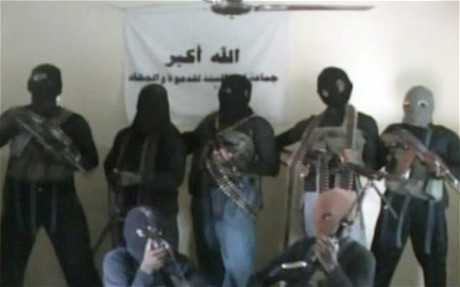As many as 5,000 members of the Boko Haram Islamist sect, together with their wives and children are expected to benefit from the amnesty programme being proposed by the Federal Government.
Sources say that the amnesty committee set up by the Federal Government would, among other things, would recommend among other things, a phased release of members in detention, which would commence with the release of the wives and children of the sect members.
It is hoped that this action would win the confidence of the sect members.
The Secretary of the Northern Elders’ Forum, Prof. Ango Abdullahi, confirmed that 5,000 Boko Haram fighters were likely to benefit from the amnesty, while debunking the notion that the members are faceless.
Abdullahi said, “We cannot say these people are absent because about 5,000 of them are in detention. You (journalists) are the ones reporting that (Boko Haram) commanders so, so, and so have been arrested.
“So we agree that there are senior commanders in detention and I think there is this opportunity even for physical contact between the group and some members of the group and government.
“Most reasonable opinions agree that the use of force will not solve this problem. The way forward is to encourage dialogue; it may be difficult at first, but we must try everything possible to encourage interactions between members of the group and the committee.”
On whether the Northern Elders Forum would be involved in the talks, he said the committee wouldn’t decide which role groups and individuals would play, but added that members of the NEF were prepared to help restore peace to the North.
The committee which would be inaugurated on Wednesday next week is expected to initiate dialogue with the leaders at a date, place and venue yet to determined.
Also, members of the sect who rejected the amnesty plans earlier are yet to respond to the latest developments.
A top security source who declined being named, “Some wives, children and relatives of members of the sect are among those being detained.
“The government may start with the release of this category of people as a sign of its commitment to peace. I believe members of this committee will be favourably disposed to making this recommendation.”
As for the venue of talks should members of the sect accept dialogue, the source said, “They may opt for Saudi Arabia or any other country they consider a neutral ground, like they did in the past. This is because they still cannot trust that government will not use the venue of the talks to further hunt them down.
“Trust is still a big issue here; the question remains whether the sect will trust that government will be sincere this time around and not resort to behaviours that led to the breakdown of similar attempts in the past.
“Just like those in government, they also have hardliners. This group of members are likely to give near impossible conditions such as the rebuilding of their homes and places of worship destroyed by government forces and the like. ”
The calls for amnesty started last month when the Sultan of Sokoto called for it in Kaduna, before it was echoed by many prominent Nigerians.
However, the calls for amnesty has also been strongly opposed by many groups and persons, such as the Christian Association of Nigeria (CAN).
President Goodluck Jonathan had also opposed the calls for dialogue, saying that his administration could not hold talks with ghosts, as he asked that the sect members come out of hiding first before any talks could be held.
However, after meetings with Northern elders and security chiefs, the President promised to set up an amnesty committee, which he did when on Wednesday he named a 26-member committee headed by the Minister for Special Duties, Kabiru Turaki.
However, two members of the committee, the civil rights activist, Shehu Sani, and the Chairman, Supreme Council for Shari’a in Nigeria, Dr Datti Ahmed, rejected their nomination into the committee on Wednesday and Thursday respectively.
Sani, in expressing doubts over the possibility of success for the committee, said, “I have not seen people in that committee whom members of the sect will trust enough to dialogue with.
“A committee headed by a serving minister does not look to me as serious. For this committee to make progress, these three people must be part of it: Ahmed Shilkida (a freelance journalist), Hamza Idris and Mustapha Zanna. If these people are not part of the committee, it is difficult for it to succeed.”
Ahmed, on the other hand, said that government ought to start with implementing the numerous reports of previous committees and panels set up to look into the issue. He added that unless that was done, there was no indication that the report and recommendations of this committee would be implemented.

